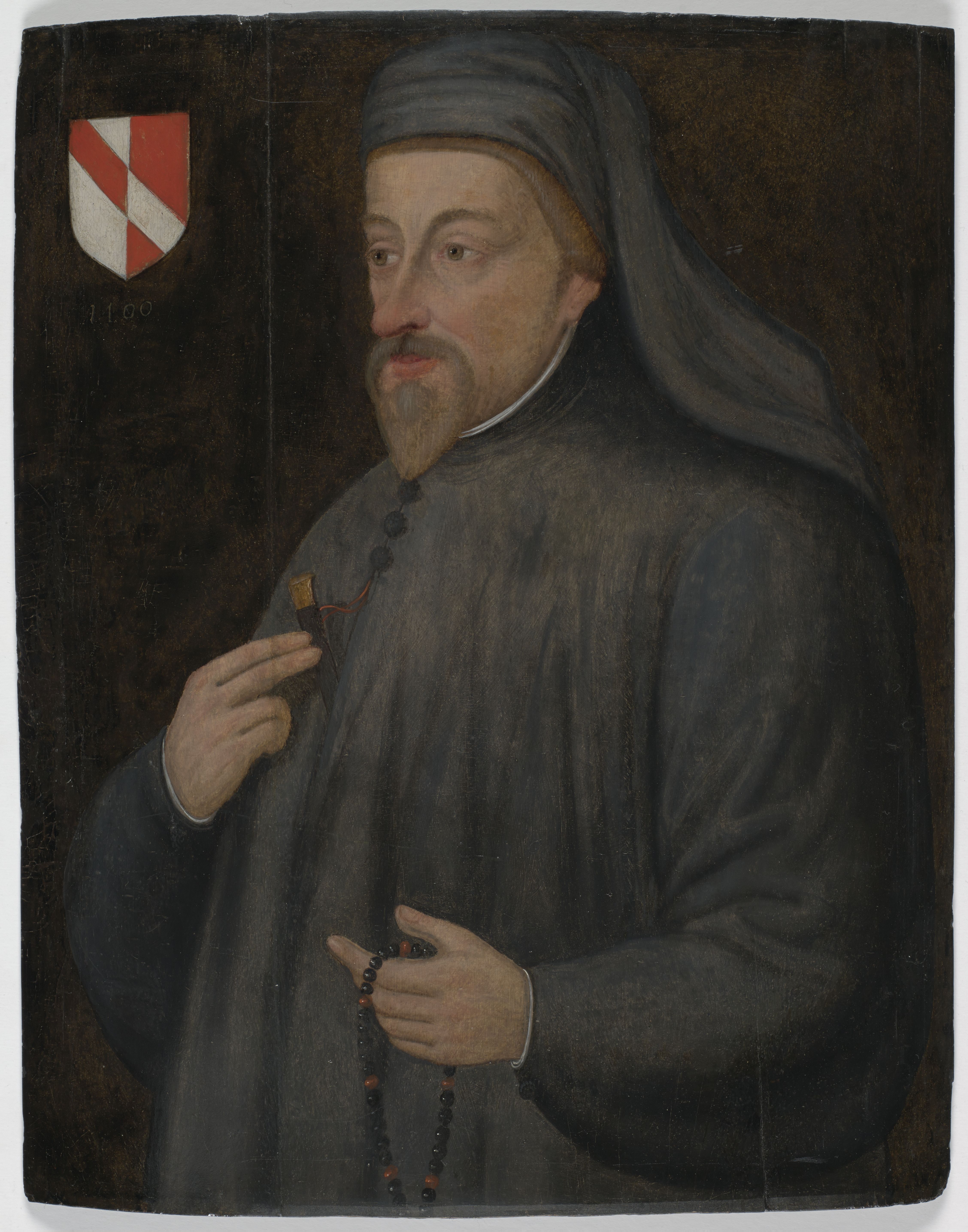Obras
Los cuentos de Canterbury
Geoffrey ChaucerFrases célebres de Geoffrey Chaucer
“¿Qué hay mejor que la sabiduría? Una mujer. ¿Y qué hay mejor que una buena mujer? Nada.”
Fuente: Chaucer, Geoffrey. Los cuentos de Cantorbery, Volumen 1. Editorial Reus (s.a.), 1921. p. 233.
Frases de hombres de Geoffrey Chaucer
Frases sobre el corazón de Geoffrey Chaucer
Geoffrey Chaucer Frases y Citas
“nada que es completo en sí mismo es más fuerte cuando se divide.”
Cuentos de Canterbury
Cuentos de Canterbury
“El amor es una cosa tan libre como el espíritu.”
Cuentos de Canterbury
Cuentos de Canterbury
Fuente: Chaucer, Geoffrey. Cuentos de Canterbury. Editorial e-artnow, 2014. ISBN 9788026806868.
Fuente: El cuento de la comadre de Bath, comienzo.
“Lo que comenzó mal, rara vez y con muchísima dificultad concluirá bien".”
Cuentos de Canterbury
“según Séneca, "el airado y enojado no puede hablar de algo sin vituperarlo".”
Cuentos de Canterbury
“soy el árbol que florece antes de que el fruto madure.”
Cuentos de Canterbury
“la plenitud de la felicidad consistía en el deleite perfecto”
Cuentos de Canterbury
“el que habla mal no puede nunca recobrar sus palabras.”
Cuentos de Canterbury
“es imposible hallar al caballo perfecto en todos los aspectos”
Cuentos de Canterbury
Contestación del caballero a la reina respondiendo a su requerimiento de que averigüase qué es lo que más desean las mujeres.
Cuentos de Canterbury
Fuente: El cuento de la comadre de Bath.
“El proverbio dice que muchos pocos hacen un mucho.”
Cuentos de Canterbury
Original: «The proverbe saith that many a smale maketh a grate».
Geoffrey Chaucer: Frases en inglés
“No empty handed man can lure a bird”
Fuente: The Canterbury Tales
“people can die of mere imagination”
Fuente: The Canterbury Tales
“If gold rusts, what then can iron do?”
Fuente: The Canterbury Tales
Book 5, line 1835-1841
Troilus and Criseyde (1380s)
Contexto: O yonge fresshe folkes, he or she,
In which that love up-groweth with your age,
Repeyreth hoom fro worldly vanitee,
And of your herte up-casteth the visage
To thilke God that after his image
Yow made, and thynketh al nis but a faire
This world, that passeth sone as floures faire.
“Men may the wise atrenne, and naught atrede.”
Fuente: Troilus and Criseyde
“Eek for to winne love in sondry ages,
In sondry londes, sondry ben usages.”
Troilus and Criseyde (1380s)
Contexto: Ye knowe eek, that in forme of speche is chaunge
Withinne a thousand yeer, and wordes tho
That hadden prys, now wonder nyce and straunge
Us thinketh hem; and yet they spake hem so,
And spedde as wel in love as men now do;
Eek for to winne love in sondry ages,
In sondry londes, sondry ben usages.
Book 2, line 22-28
“And therfore, at the kynges court, my brother,
Ech man for hymself, ther is noon other.”
The Knight's Tale, l. 1181-1182
The Canterbury Tales
The Knight's Tale, IV, 1919 - 1921
The Canterbury Tales
Book 2, line 22-28
Troilus and Criseyde (1380s)
Contexto: Ye knowe eek, that in forme of speche is chaunge
Withinne a thousand yeer, and wordes tho
That hadden prys, now wonder nyce and straunge
Us thinketh hem; and yet they spake hem so,
And spedde as wel in love as men now do;
Eek for to winne love in sondry ages,
In sondry londes, sondry ben usages.
“This world nys but a thurghfare ful of wo,
And we been pilgrymes, passynge to and fro”
The Knight's Tale, lV, 1990 - 1992
The Canterbury Tales
Contexto: This world nys but a thurghfare ful of wo,
And we been pilgrymes, passynge to and fro;
Deeth is an ende of every worldly soore.
“Thanne is it wysdom, as it thynketh me,
To maken vertu of necessity,”
The Knight's Tale, lV 2177 - 2186
The Canterbury Tales
Contexto: p>What maketh this, but Juppiter the kyng,
That is prince and cause of alle thyng
Convertynge al unto his propre welle
From which it is deryved, sooth to telle,
And heer-agayns no creature on lyve
Of no degree availleth for to strive.Thanne is it wysdom, as it thynketh me,
To maken vertu of necessity,
And take it weel, that we may nat eschue;
And namely, that to us alle is due.</p
The Nun's Priest's Tale, l. 672-677
The Canterbury Tales
Parlement of Foules, l. 1-4; comparable with Hippocrates, Aphorisms 1:1
Fuente: The Parliament of Birds
“the greatest scholars are not usually the wisest people”
The Reeve's Tale, l. 134
The Canterbury Tales
Variante: The gretteste clerkes been noght wisest men.
Fuente: The Complete Poetry and Prose
“He helde about him alway, out of drede,
A world of folke.”
Book 3, line 1721
Troilus and Criseyde (1380s)
General Prologue, l. 305 - 310
Fuente: The Canterbury Tales
Contexto: Of studie took he most cure and most hede.
Noght o word spak he more than was nede,
And that was seyd in forme and reverence,
And short and quik, and ful of hy sentence.
Souninge in moral vertu was his speche,
And gladly wolde he lerne, and gladly teche.
“Ful wys is he that kan hymselven knowe!”
The Monk's Tale, l. 3329
The Canterbury Tales
Fuente: The Riverside Chaucer
“all that glitters is not gold”
Fuente: The Canterbury Tales
“Therfore bihoveth hire a ful long spoon
That shal ete with a feend.”
The Squire's Tale, l. 594-95
The Canterbury Tales
